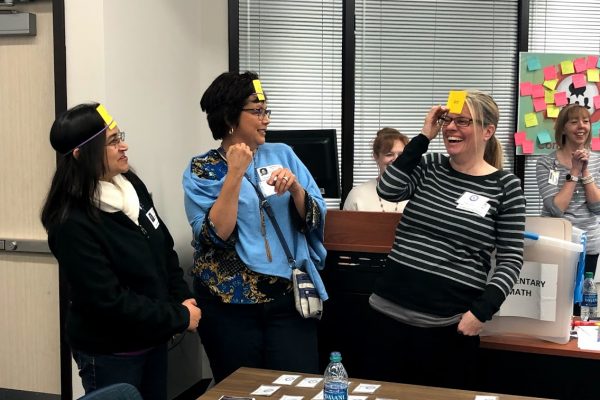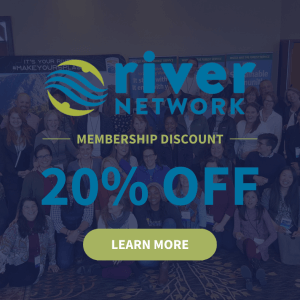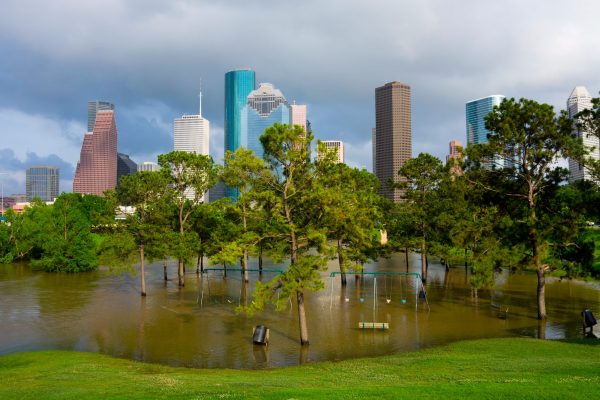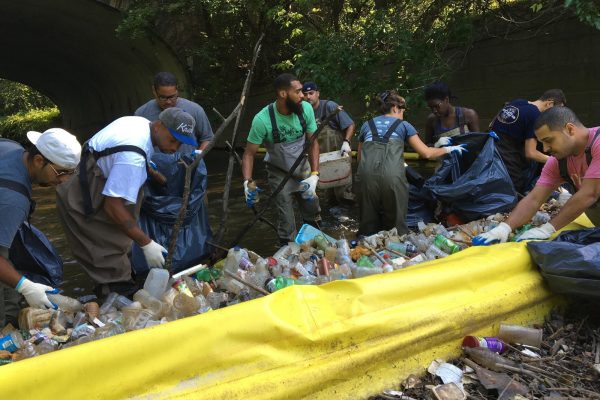River Voices: August 2021

Welcome to the August 2021 edition of River Voices. This month, we’re exploring equitable resilience through the lens of Community-Led Research. Plus, it’s membership discount time AND we have River Rally 2022 dates! Join or renew and enjoy a 20% discount on your yearly membership dues, then save big on Rally.
Community-Driven Equitable Resilience
For the last eight months, our staff has been putting our Tools for Equitable Climate Resilience to work. Now, meet the eleven local groups we’ve supported in building leadership development programs and implementing Community-Led Research to center equity in conversations, decisions, and community impacts related to climate change. We’re excited to share these groups’ creative uses of these two strategies, as well as their success stories and lessons learned.
Read more about Community-Led Research.
Read more about Leadership Development.
For 28 years, River Network membership has been here to serve you with the knowledge, mentorship, peer support, and resources you need to succeed. Join or renew your premium membership today at 20% off to join a community that is more remote, but also more connected, than ever.
“If you can apply sensitivity to a community and pay attention—as much as possible—to the nuances in the conversations within a community, it can save a lot of lives.”
Daniel Joseph Wiley works on housing policy with Ironbound Community Corporation.
We’re beyond thrilled to announce River Rally will be heading to Washington, DC, in June 2022. Join us in-person once again for the education, celebration, and inspiration that you expect from River Rally, and look for new ways to get involved, starting this fall. We want River Rally to represent the network… that’s YOU!
Online Accessibility as a Component of Water Equity
As many organizations, including River Network, have ramped up online events and digital outreach in the last few years, we have unintentionally excluded many individuals from these conversations. Hear from our team on how we’re working towards more accessibility in our virtual program offerings, ensuring we’re fully inclusive of our network members and partners who may speak languages other than English (the language many of us default to), live with a disability, and/or are neurodiverse.
Read more and join the discussion in our Online Community.
Over 12% of the U.S. population is exposed to flood risk, including nearly 170 coastal communities reaching or exceeding the threshold for chronic inundation from rising seas by 2035. Drought is no less of a threat. River Network provides knowledge, tools, and engagement opportunities to local champions building resilient communities that anticipate risk, limit impact, and recover quickly from disaster.
Below, learn about River Network’s work related to resilience, and connect with our staff working on these issues.
“At the Deer Creek site, a man stopped to tell me that until the [litter capture device] went in, he had never considered picking up the trash himself. Now he goes along the path and picks up trash a few times per week.” ~Rachel Bartels, Missouri Confluence Waterkeeper
Successful litter management projects include a mix of strategies. The most recent story map from the Urban Waters Learning Network highlights resources and case studies that utilize a variety of strategies and technologies.
Science Corner: Putting Data to Action for a Healthy Schuylkill River
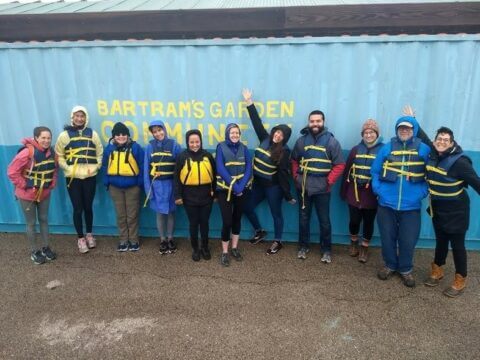 The latest from our science team.
The latest from our science team.
Steps toward change happen with collective action. In late June, staff from Bartram’s Garden shared their story of how they used their data and collective voice to highlight water quality issues and demand the attention of the governing agencies of the tidal Schuylkill River in Southwest Philadelphia.
Hear from Colleen Walters, River Network’s Delaware River Basin Program Coordinator on this impactful work.
Most Endangered Rivers Nominations Are Open for 2022!
Is your river facing a decision in the coming year that will impact its fate? America’s Most Endangered Rivers® is the most influential national campaign to galvanize public action and secure victories for rivers, clean water and communities. Every year, American Rivers generates a report and media blast on 10 rivers at a crossroads where an upcoming action could make or break the future health of the river. They are now accepting nominations for our 2022 report from interested groups throughout the United States.
Ask the Network: Addressing Western Water Issues
We recently asked network members in the River Network Online Community how they’re addressing the variety of water issues facing the West – especially related to wildfire. Here’s a bit of what they had to say.
From Meredith McKenzie – “The Kern River Conservancy (KRC) in the Southern Sierra Nevadas of California has been extensively involved in media outreach as well as visitor trash pickup and graffiti removal for a number of years as part of its efforts to reduce human-caused incendiary situations during high danger fire times. KRC just received a $25,000 grant to expand outreach to these outdoor recreation users in the Kern River Valley, including the construction of a mobile outreach kiosk.”
From Sandi Good – “Peaks to People is committed to protecting Northern Colorado’s water supplies from the devastating effects of severe wildfires. Wildfires can significantly affect the ability of watersheds to meet municipal, industrial and agricultural water uses. The Big Thompson watershed’s critical water infrastructure supplies between 40 and 55% of the annual water needs of Fort Collins, Loveland, and Greeley, and it provides water to 30 other towns and cities along the Colorado Front Range. Analysis by the Peaks to People Water Fund team has determined that treating just 28,000 acres within the 575,000-acre Big Thompson watershed could reduce 84% of severe fire risk and conserve the forests most important for water supply.”
Join the conversation in our Online Community to learn more!
Tapping Into Federal Funding: Leveraging WaterSMART Grants for Innovative Water Infrastructure Investments
August 18, 2021; 3p ET / 12p PT
WaterNow’s third webinar in the Tap into Federal Funding series will feature an increasingly important sustainable water funding program for Western communities: Bureau of Reclamation’s WaterSMART grants. This event will explore how local leaders can leverage the Bureau of Reclamation’s WaterSMART grants for proven water conservation and efficiency infrastructure investments, build long-term resilience to drought, and prioritize environmental benefits that increase the reliability of water resources.
Ridgway RiverFest
August 28
The Ridgway RiverFest is a family-friendly celebration of the Uncompahgre River, our watershed and river recreation with all-age river races, live music, local food and drink, kids’ activities, watershed educational and cultural programs. RiverFest is produced by the Uncompahgre Watershed Partnership, a Ouray County nonprofit watershed group dedicated to helping protect the economic, natural, and scenic values of the Upper Uncompahgre River Watershed.
What We’re Reading
Practical Guide for Ethical Imagery – From WaterHub and Survival Media Agency, this guide includes information for communicators and visual storytellers who want to tell more ethical, rather than extractive stories.
Moving from Intention to Impact: Funding Racial Equity to Win – This recent joint PolicyLink-Bridgespan study analyzes the state of funding for racial equity work. Among its findings include two key takeaways for funders: that accountability, a necessity of racial equity work, is impossible without rigorous and transparent reporting; and that funders must trust and defer to the articulated needs of movement leaders and fund the work that movement leaders say is needed to achieve enduring change.


